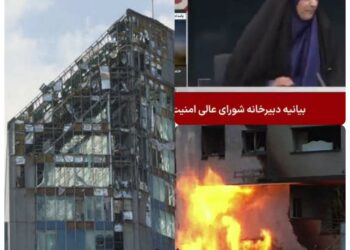As the conflict in Gaza continues to affect millions, significant developments are unfolding, offering a glimmer of hope for hostages, civilians, and the war-torn region. A landmark hostage exchange agreement has been reached between Israel and Hamas, while the United Nations (UN) highlights the severe humanitarian crisis that remains.
Hostage Exchange Deal Reached
Israeli Prime Minister Benjamin Netanyahu has confirmed a historic deal that will see the return of 33 hostages held by Hamas over the course of six weeks. In exchange, Israel will release hundreds of Palestinian prisoners, marking a major breakthrough in the ongoing conflict. The first phase of the agreement is set to begin shortly, with the second phase scheduled to follow.
Despite this glimmer of progress, the situation remains dire. In the wake of the announcement, Israeli airstrikes in Gaza have intensified, leading to the deaths of at least 72 civilians since the ceasefire deal was unveiled. Tensions continue to rise, with no immediate resolution to the ongoing hostilities.
Severe Humanitarian Crisis
The United Nations has reported a staggering setback in Gaza’s development due to the conflict, estimating that it will take the region 69 years to recover. Over two-thirds of Gaza’s structures have been destroyed, and nearly 86% of the population is now suffering from crisis-level hunger. Access to food remains severely limited, with ongoing blockades and fighting further obstructing efforts to deliver aid.
These grim statistics underscore the urgency of a sustained ceasefire, as humanitarian groups call for unimpeded access to the region for relief efforts. The international community is pressing for a broader resolution to the conflict, but the situation remains precarious.
Political Reactions and Opposition
While some voices call for peace, others remain steadfast in their opposition. Israeli far-right National Security Minister Itamar Ben-Gvir has voiced strong opposition to the ceasefire deal, stating that it could jeopardize Israel’s security and accomplishments. Ben-Gvir has threatened to leave the Israeli government if the ceasefire is approved, calling it “reckless” and warning that it could lead to further instability.
Despite this opposition, Netanyahu is moving forward with plans to present the agreement to his security cabinet and government for approval. The future of the deal remains uncertain, as political divisions continue to complicate efforts for peace.
International Support and Humanitarian Assistance
The international community has been quick to respond to the ongoing crisis. China, in particular, welcomed the hostage exchange deal and expressed hope that it would pave the way for a permanent ceasefire in Gaza. The Chinese government also reaffirmed its commitment to providing humanitarian aid and supporting the reconstruction of Gaza once the conflict ends.
As the situation evolves, the world watches closely, hoping that the recent agreements will offer a path toward peace and help mitigate the devastating impact of the ongoing war.
With the crisis far from over, both sides of the conflict face mounting pressure from the global community to reach a lasting and comprehensive peace. As the negotiation continues, the humanitarian toll on Gaza’s population remains an urgent priority for international relief efforts.
This report is compiled for The Merit Newspaper by its international correspondents.
















